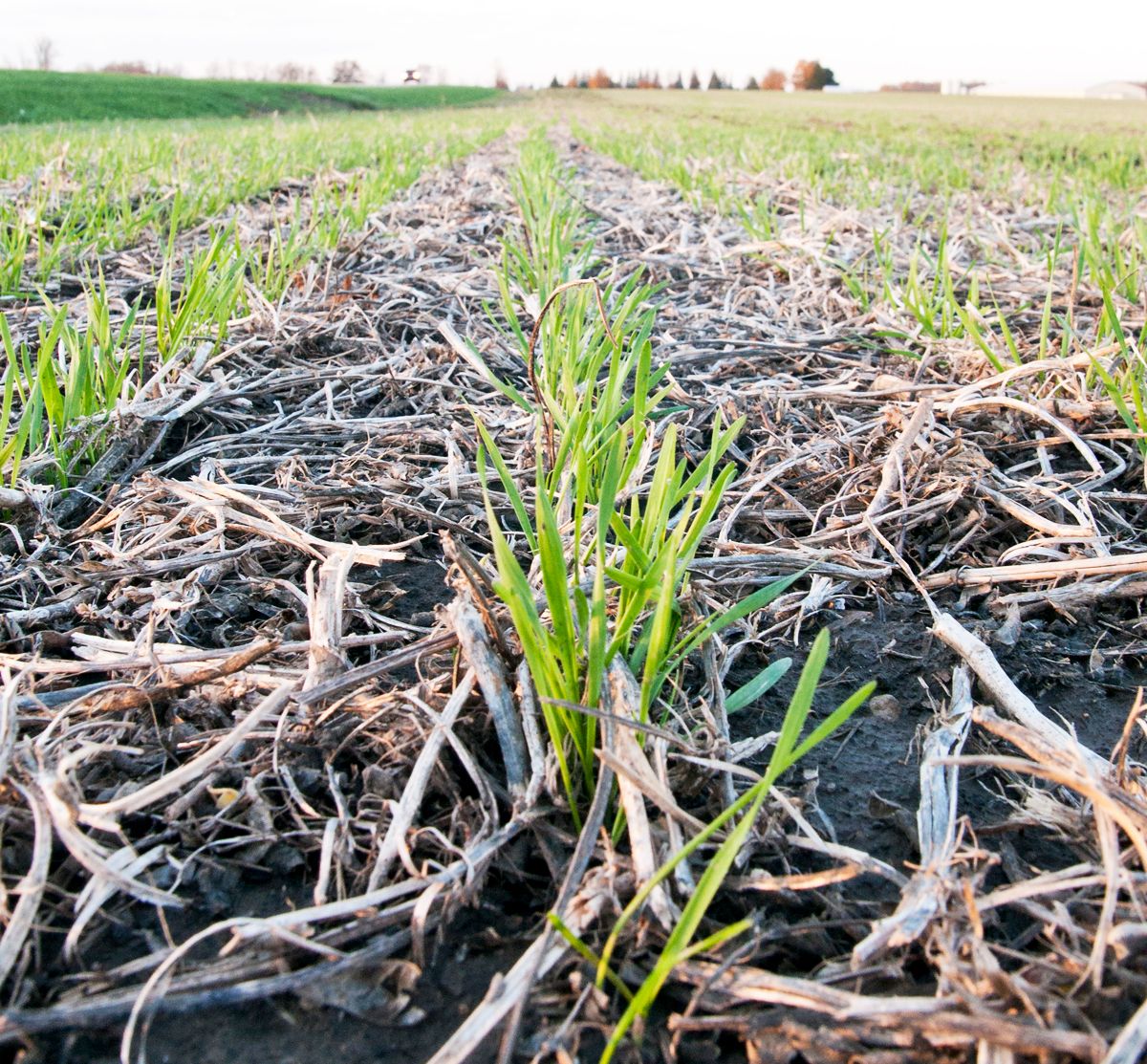New soil health strategy to help protect water

Ontario’s new soil health strategy offers actions to build healthier soils, protect water
Ontario has a new soil health strategy to provide a long-term framework to guide soil-related activities, investments, and research.
“Healthy soil has many economic and environmental benefits including improved crop growth, yield and quality, water and nutrient retention, resilience, biodiversity, and climate change adaptation and mitigation,” according to the Executive Summary of New Horizons: Ontario’s Agricultural Soil Health and Conservation Strategy.
The strategy is based on a collaborative approach and builds on the knowledge and achievements of soil-care partners across the Province — agricultural organizations, conservation authorities, technical experts, Indigenous communities, academics, and the public. Collaboration will also be key to implementation of the strategy.
Soil organic carbon is decreasing in many places and risk of erosion is also high in many areas, so there is a need to improve soil care. There is too much bare soil in winter and this puts soil at the risk of erosion. Other concerns are less diverse crop rotations and too much use of tillage. “The good news is a growing number of farmers are incorporating cover crops,” according to the soil health strategy web page.
The new strategy is guided by soil health principles to:
1. Build soil organic matter;
2. Diversify crops;
3. Minimize soil disturbance;
4: Keep living roots throughout the year; and
5. Keep the soil covered.
The strategy’s vision is: Healthy agricultural soils contribute to a vibrant agricultural sector, productive economy, sustainable environment and thriving society.
The strategy has a goal for soil management practices that sustain and enhance soil health and productivity for economic, environmental and societal needs.
The new strategy aims to achieve its goal by including action items under four themes. The themes are:
1. Soil management;
2. Soil data and mapping;
3. Soil evaluation and monitoring; and
4. Soil knowledge and innovation.
To learn more visit: http://omafra.gov.on.ca/english/landuse/soil-strategy.htm
The Soil Health and Conservation Strategy is the culmination of two-and-a-half years of collaboration and hard work. It has benefited from the extensive soil health expertise and insights from the Soil Health Working Group members.
Soil Working Group members included:
- Don McCabe, Ontario Federation of Agriculture (OFA);
- John Bos, Christian Farmers Federation of Ontario (CFFO);
- Maxine Kingston, Agriculture and Agri-Food Canada;
- Andrew Graham, Ontario Soil and Crop Improvement Association (OSCIA);
- Tracey Ryan, Grand River Conservation Authority (GRCA) and Conservation Ontario;
- Ralph Martin, University of Guelph, Universities and Research Community;
- Claudia Wagner-Riddle, University of Guelph;
- Dale Cowan, CCA, Ontario Certified Crop Advisor Association;
- Ken Laing, Ecological Farmers Association of Ontario;
- Don Lobb, Soil Conservation Council of Canada;
- Laurent (Woody) Van Arkel, Innovative Farmers Association of Ontario;
- Sam Bradshaw, Farm and Food Care;
- Josh Cowan, Grain Farmers of Ontario;
- Harold Schooley, Ontario Fruit and Vegetable Growers Association; and
- Tony Straathof, National Farmers Union (NFU) Ontario.
Agriculture and Agri-Food Canada defines soil health as its ability to support crop growth without becoming degraded or otherwise harming the environment. The U.S. Natural Resource Conservation Service suggests that soil health is the “continued capacity of soil to function as a vital living ecosystem that sustains plants, animals, and humans.”
To find out about soil health, best management practices, grants, and technical expertise across Lake Huron’s southeast shore, to preserve valuable topsoil and keep nutrients and sediment out of streams, rivers, groundwater, and Lake Huron, please visit the websites of conservation partners of the Healthy Lake Huron — Clean Water, Clean Beaches Partnership at healthylakehuron.ca
